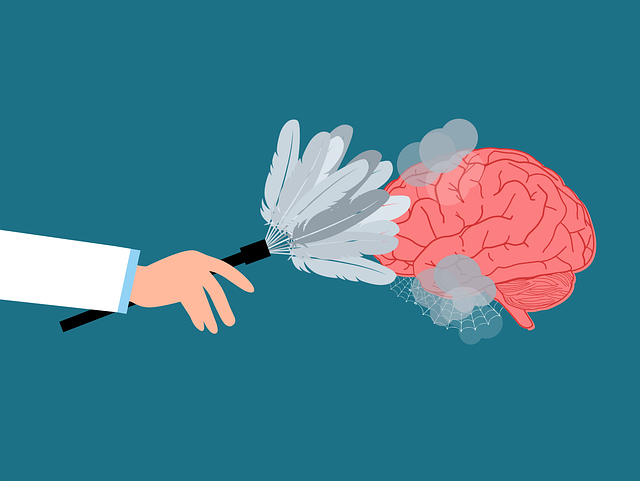Burnout among healthcare providers specializing in Arvada Autism Spectrum Disorder (ASD) therapy is a growing issue, driven by long hours, high-stress environments, and heavy caseloads. It manifests as emotional exhaustion, depersonalization, and decreased personal accomplishment. To combat this, public awareness campaigns destigmatize mental wellness and encourage open conversations. Initiatives like the Mental Wellness Podcast Series offer resources, coping mechanisms, and peer support networks. Proactive strategies for prevention include self-care practices, mentorship, professional development, compassion cultivation, and building supportive communities. Optimizing care for ASD patients requires collective efforts focused on work-life balance and resilience-building practices like Social Skills Training and Compassion Cultivation.
In the demanding field of healthcare, particularly within Arvada Autism Spectrum Disorder (ASD) therapy, burnout among providers is a growing concern. This article delves into strategies to combat this pervasive issue, offering insights on understanding and identifying burnout, along with practical steps for prevention. We explore the significance of risk factors specific to ASD therapy and emphasize the vital roles of support systems and work-life balance in fostering resilience among healthcare professionals.
- Understanding Burnout Among Healthcare Providers
- Identifying Risk Factors for Burnout in ASD Therapy
- Implementing Effective Burnout Prevention Strategies
- The Role of Support Systems and Work-Life Balance
Understanding Burnout Among Healthcare Providers

Burnout among healthcare providers is a growing concern, particularly within specialties like Arvada Autism Spectrum Disorder Therapy, where intense and emotionally demanding work can take a toll on mental wellness. This phenomenon extends beyond mere fatigue; it encompasses emotional exhaustion, depersonalization, and a sense of reduced personal accomplishment, as measured by the widely recognized Maslach Burnout Inventory. Healthcare professionals often face long hours, high-stress environments, and heavy caseloads, contributing to feelings of burnout over time.
Understanding burnout is crucial for developing effective prevention strategies. Public Awareness Campaigns Development focused on mental wellness can help destigmatize the issue and encourage open conversations. Additionally, initiatives like Mental Wellness Podcast Series Production can provide valuable resources and support to healthcare providers, offering coping mechanisms, self-care tips, and peer support networks tailored to their unique challenges. Such efforts are essential in fostering a culture of resilience and well-being within the healthcare profession.
Identifying Risk Factors for Burnout in ASD Therapy

Burnout among healthcare providers, particularly those specializing in Autism Spectrum Disorder (ASD) therapy in Arvada, is a growing concern. Several risk factors contribute to this issue. High workload, demanding client needs, and limited resources can lead to chronic stress and emotional exhaustion over time. Therapists often face the challenge of managing complex behaviors, which requires constant adaptability and creativity, potentially leading to feelings of frustration and helplessness if not adequately supported.
Effective burnout prevention strategies for ASD therapy in Arvada must address these risks. Promoting robust communication strategies among therapists, colleagues, and families can foster a supportive environment. Encouraging emotional regulation techniques empowers providers to manage stress effectively. Additionally, integrating self-care practices, such as regular breaks, mentorship programs, and access to professional development opportunities, is crucial for maintaining well-being and preventing burnout.
Implementing Effective Burnout Prevention Strategies

Implementing effective burnout prevention strategies is a proactive approach that healthcare providers can embrace to promote their mental wellness and sustain their careers. These strategies are crucial in addressing the challenges faced by professionals, such as those offering Arvada Autism Spectrum Disorder Therapy, who often deal with emotionally demanding cases daily. By incorporating compassion cultivation practices into their routines, healthcare providers can enhance their ability to connect with patients and reduce stress levels.
Empathy-building strategies are another powerful tool. Mentoring programs or peer support groups can foster a sense of belonging and provide a safe space for professionals to share experiences and learn from one another. Additionally, encouraging mental wellness journaling exercises can offer individuals a private avenue to process their emotions, reflect on achievements, and set realistic goals, ultimately contributing to improved overall well-being.
The Role of Support Systems and Work-Life Balance

In the healthcare sector, where compassion and resilience are paramount, preventing burnout among providers is a collective effort that heavily relies on support systems and fostering work-life balance. These strategies are especially crucial for professionals treating complex conditions like Autism Spectrum Disorder (ASD) in Arvada, where intense emotional labor and unique patient needs demand sustained dedication.
Building robust support networks, including peer mentoring programs and professional counseling services, can significantly mitigate burnout risks. Additionally, implementing flexible work arrangements and encouraging healthy boundaries between professional and personal life are essential components of burnout prevention. Incorporating practices like Social Skills Training and Compassion Cultivation can further enhance resilience, offering providers tools to navigate challenging situations while maintaining a sense of balance.
Burnout among healthcare providers, particularly those specializing in Arvada Autism Spectrum Disorder (ASD) therapy, is a growing concern. By understanding the risk factors and implementing effective prevention strategies, such as prioritizing work-life balance and leveraging support systems, we can create a more sustainable and fulfilling environment for these essential professionals. These measures not only benefit individual therapists but also enhance patient care and the overall success of ASD therapy programs in Arvada and beyond.














